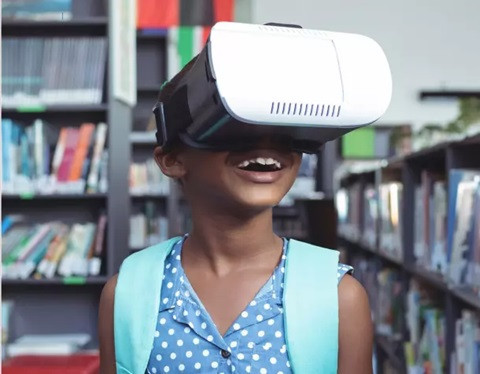
GCED Basic Search Form
Quick Search
当前位置
新闻

14 March 2024 - Last update: 18 March 2024
Internet access has transformed the flow of information and expanded spaces for different expressions of knowing and being – and opportunities for effecting positive societal change. But it has also exacerbated and accelerated the spread of misinformation, disinformation, hate speech and online violence. That is why global citizenship education is crucial in an increasingly digital world.
As the world celebrates the first International Day for Digital Learning on 19 March, here is what you need to know about UNESCO’s recent latest publication - Global citizenship education in a digital age: Teacher guidelines
Why is digital global citizenship important?
In 2023, 79% of world’s youth between the age of 15-24 were using the internet. The role of education, especially through global and digital citizenship, has become increasingly vital. It has the power to equip all learners, especially the youngest ones, with the skills and competencies to effectively access, critically engage with, create, use and share information and knowledge on and through diverse digital technologies, in particular social media platforms. Tools like UNESCO’s new guidelines for teachers are essential to provide a comprehensive framework for fostering global citizenship through digital literacy. This ensures learners can thrive in this interconnected digital environment.
Global Citizenship Education (GCED) is a strategic component of UNESCO’s work in education that builds upon the groundwork laid by peace and human rights education, with the aim of nurturing in learners the skills, competencies, values, mindsets and attitudes necessary for responsible global citizenship, including the fostering of criticality, creativity, innovation, common humanity and an unwavering dedication to peace, human rights and sustainable development.
Digital citizenship education, a central element of GCED, emphasizes the knowledge, skills and attitudes necessary to responsibly navigate the digital sphere. By integrating digital citizenship, media and information literacy, and ethics, this publication seeks to prepare learners to contribute constructively to digital communities globally.
How are the new guidelines useful for educators?
The guidelines emphasize the importance of ensuring all learners have inclusive access to technology and information, which is vital for their development as responsible digital citizens. This approach acknowledges complexities around the digital divide, emphasizing the necessity of inclusive education that bridges gaps and promotes equitable technology access. By growing skills in areas like critical thinking, ethical decisions and creative problem-solving, the guide aims to shape learners into responsible citizens capable of advancing a more peaceful, just and sustainable world.
The guidelines offer a comprehensive collection of lesson plans, modules and teaching strategies to engage learners and reinforce global digital citizenship competencies. These resources encourage participation in both physical and digital spaces, with an emphasis on addressing global challenges through the Sustainable Development Goals.
Highlighting new teaching roles and responsibilities, the guide provides valuable insights for effectively adapting methods to incorporate technological tools. This fosters student growth in communication, creativity and innovation. For educators navigating this digital terrain, the guidelines serve as a key resource for leveraging technology’s potential to enrich learning and prepare students to engage as responsible global citizens in the physical and digital world.
URL: https://www.unesco.org/en/articles/qa-why-digital-global-citizenship-education-essential
